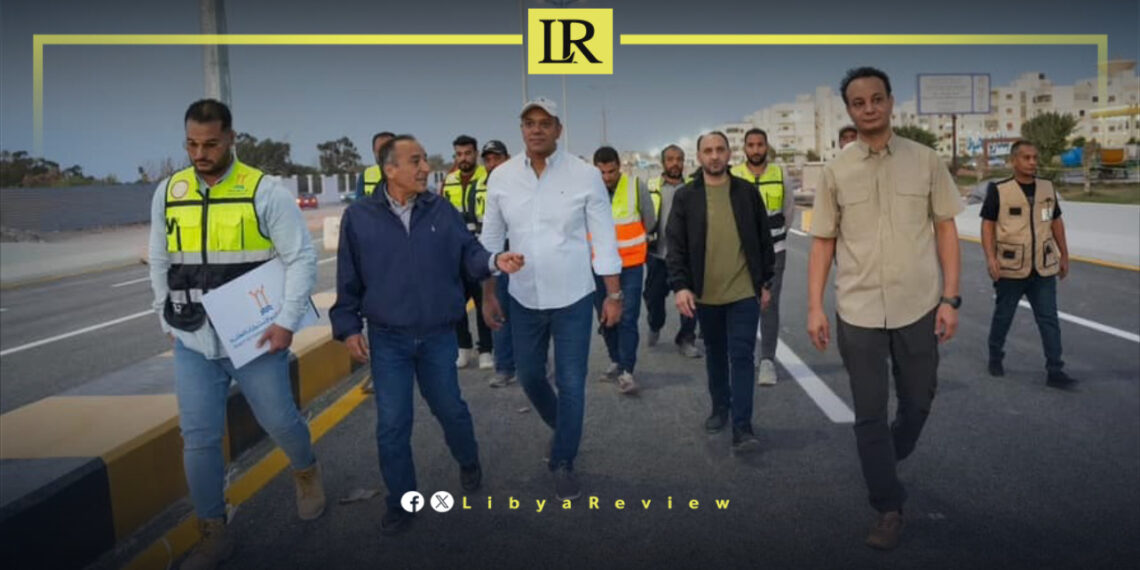On Saturday, the Director-General of the Libyan Development and Reconstruction Fund, Belgassim Khalifa Haftar, conducted a comprehensive inspection of reconstruction sites in the city of Derna, assessing key projects in Libya’s post-disaster rebuilding efforts.
Haftar’s tour included visits to the Corniche development and several bridge projects critical to restoring connectivity within the city. During his inspections, Haftar closely examined the progress and quality of work, stressing the importance of meeting project timelines to ensure timely completion and the overall success of the rebuilding efforts.
This inspection marks another step in the ongoing recovery of Derna, a city severely impacted by catastrophic flooding in September 2023. The disaster, brought on by Storm Daniel, caused two dam failures that resulted in widespread destruction and the loss of thousands of lives.
The aftermath left Derna’s infrastructure in critical condition, with roads, bridges, and residential areas devastated. In response, Libya established the Development and Reconstruction Fund to lead the recovery process, appointing Belgassim Haftar to oversee and manage these efforts.
Haftar’s role in the reconstruction of Derna reflects Libya’s broader aim to address immediate needs and build long-term resilience. As part of these efforts, the Development and Reconstruction Fund signed contracts with Egypt’s Arab Contractors to build new bridges, replacing those lost to the floods.
Additionally, Haftar and his team are working alongside international partners and national agencies to ensure high standards in infrastructure rebuilding, improved housing, enhanced sewage systems, and strengthened dam structures—all critical for Derna’s recovery and resilience against future natural disasters.
The reconstruction efforts have faced challenges, however, including delays in aid distribution and criticisms over fund transparency.
Some residents and observers have expressed concerns about the pace of progress and the potential for financial mismanagement, with scrutiny over fund administration and resource allocation. These concerns reflect broader public demand for accountability, especially as the Fund’s activities are essential for rebuilding trust in Libya’s public institutions.


